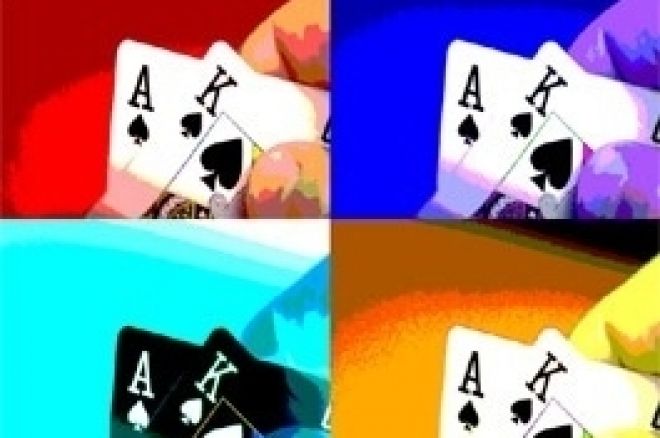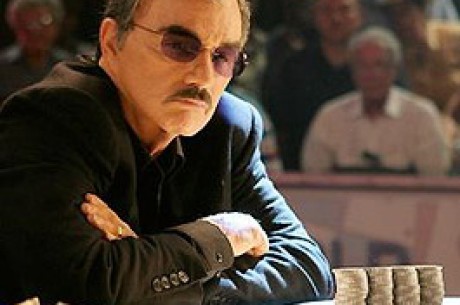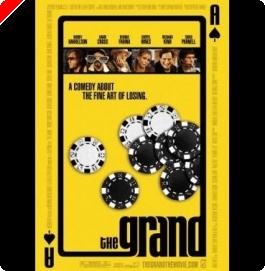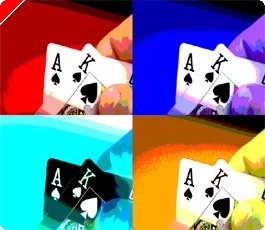Poker & Pop Culture: Critical Reception of 'The Cincinnati Kid'

Debates about the best-ever poker movie nearly always resolve into discussions of the relative merits of a few favorites, with The Cincinnati Kid (1965) usually figuring as one of a small group of candidates for top honor. The relative paucity of successful poker-themed films of late, a phenomenon contemplated by John Caldwell here, has perhaps further enhanced the Kid's luster as one of few triumphs in a generally underachieving category of cinema.
Poker players have their own, sometimes idiosyncratic criteria for judging poker films. Frequently such judgments are guided by impressions of whether or not the game's presentation rings true. As often happens with fans' responses to sports-themed films, poker players look for authenticity when it comes to the mechanics of the game, players' motives and decisions, and even the relative significance of the game in characters' lives.
However, it is interesting, and revealing, to consider how such films fare among the general populace. While The Cincinnati Kid currently enjoys a special status among many (not all) poker players, how did viewers respond to the film when it first appeared in 1965? And what might those responses tell us about the place of poker in popular culture, circa mid-sixties?
A "TOTALLY UNCINEMATIC" SUBJECT
At the time the film premiered October 15, 1965, there weren't too many examples of poker-themed movies against which to compare The Cincinnati Kid. In his 1977 collection of essays Total Poker, David Spanier includes a chapter about poker movies. There Spanier notes that while the poker scene was "a staple ingredient of Westerns," the game usually was only a secondary element of the Old West setting, and in fact at the time of his writing, there were very few films that featured poker "observed in close-up as the primary interest" as is the case in Kid.
The decision to adapt Richard Jessup's 1963 pulp novel The Cincinnati Kid for the silver screen wasn't necessarily a popular one. In his DVD commentary, the film's director Norman Jewison notes how at the time poker wasn't generally considered to be a subject worth dramatizing. "When I took on the task of directing this film," says Jewison, "there were many people who felt that a card game was death �� that there was no way that you could make a film about a card game, because it was just so totally uncinematic."
Jewison goes on to discuss how creating intriguing characters in whom an audience could take an interest and root for or against was one strategy for combating this prejudice against an otherwise "uncinematic" subject. While he admits to having run up against various technical challenges as well when trying to film poker scenes, "the nightmare for a director is to have a round table with five people sitting at it," he says �� Jewison defends poker as an excellent way of exploring American culture. "Poker is about winning," says Jewison. "That's why it's so popular in America," because "America is about winning."
When Jewison says he "took on the task" of directing The Cincinnati Kid (1965), he refers to the abrupt removal of Sam Peckinpah, the original choice of MGM and producer Martin Ransohoff, to direct the film. The obstinate Peckinpah had raised Ransohoff's ire almost immediately after production began, and within the first few days of production had shot a couple of scenes �� one a huge riot scene involving 300 extras, the other a nude scene �� that got Peckinpah fired. One wonders what sort of film a director like Peckinpah would've made of Jessup's novel.
In any event, Ransohoff's decision to bring in Jewison, a relatively untested director whose previous experience was limited to television and comedies, perhaps reflects the caution with which MGM was proceeding with regard to the making of a poker-themed film. Jewison certainly brought his own creative touch to the project, and while Ransohoff objected to some of his decisions, Jewison had to have been a much more manageable director than was Peckinpah. The fact was, not only was there no guarantee that such a film would find an audience; prejudice against "a film about a card game" might well spell box office doom if the project weren't managed with care.
OVERSHADOWED BY THE HUSTLER
Following The Cincinnati Kid's opening, initial reviews were mixed at best, with the negatives outweighing the positives. For some, the subject matter significantly minimized the film's potential. Howard Thompson begins his review for The New York Times by insisting right away the film "is strictly for those who relish, or at least play, stud poker." Such a statement not only dismisses entirely the notion that the story is capable of attracting the attention of non-poker players, but also seems to imply something about poker, too, as a "special interest" necessarily limiting the film's appeal.
Thompson does offer some scattered praise, singling out the performances of Edward G. Robinson (who plays Lancey Howard, a.k.a. "The Man") and Joan Blondell (Lady Fingers) and certain elements of Jewison's direction, including the use of New Orleans settings. On the whole, however, Thompson finds the characters and story to be of marginal interest, ultimately pronouncing that the film "pales beside 'The Hustler,' to which it bears a striking similarity of theme and characterization."
That reference to The Hustler (1961) is another common theme of reviews of The Cincinnati Kid, with nearly every contemporary critic noting its several parallels with the critically-acclaimed billiards-themed movie starring Jackie Gleason and Paul Newman. Time Magazine's review of the film, titled "Mixed Deal," finds that "nearly everything about 'Cincinnati Kid' is reminiscent of 'The Hustler,'" with Kid suffering greatly by the comparison. After devaluing the direction, some of the acting, and a "less compelling subplot" when compared to its predecessor, the reviewer concludes by saying "by the time all the bets are in, Cincinnati Kid appears to hold a losing hand."
In her Village Voice review, Barbara Long also makes the comparison, though her criticism of the film doesn't center on its failure to match The Hustler, but rather its failure to live up to the promise of Jessup's novel, which Long liked. Long cites a "basic dishonesty" in the film's depiction of poker players, arguing that it overly romanticizes the characters to the point of "mocking" them. She laments how the character of Eric Stoner "was changed to fit Steve McQueen's image... [of] a cocky-good-guy rebel," and also finds the subplot involving the seductress Melba (played by Ann-Margaret) �� an element not present in the novel �� to be insincere. Argues Long, "an honest portrait of the lives of these poker-players would keep women and their influence to a minimum."
Interestingly, Long's criticisms are those of a poker enthusiast (she professes at the outset her interest in stud poker), and thus defy the NY Times reviewer's suggestion that the film was strictly for viewers like her. Other critics were kinder to the film, including the Variety reviewer who calls the film "a tenseful examination of the gambling fraternity." Taken as a whole, though, the tepid critical response seems to affirm the challenge mentioned by Lewison of selling a poker-themed picture to mid-sixties audiences.
THE KID'S LEGACY
In terms of box office, the film did manage to recoup its production costs and then some, earning (by most accounts) somewhere in the neighborhood of $6 million. It would take a few years, though, before its reputation as one of the best poker films would emerge.
In the 1974 film California Split, Elliot Gould's character (Charlie) sizes up a tableful of unknown poker players based on the demeanor of each, telling his partner that one younger player has "seen The Cincinnati Kid too many times." Such a line attests to the film's status within the poker community, though in Total Poker Spanier only offers marginal praise for the film. In fact, Spanier somewhat stubbornly lists The Hustler as the "best film about poker", even though that film is not about poker at all!
Following Rounders (1998), currently the other most-cited contender for best poker film, and a slew of post-poker boom disappointments over the last five years, The Cincinnati Kid's reputation has risen dramatically. Poker players young and old have taken to the story of the Kid's ambitions to knock off the Man, and various aspects of the film have also garnered belated, grudging acceptance (and even praise) from non-poker playing cineastes, too.
In fact, when one looks at the small but growing category of poker-themed movies, The Cincinnati Kid now occupies a position not unlike that of the Man himself; an older, successful figure against which all newcomers must be compared.
It didn't start out that way for the film, though. Even the Man was once just a Kid.








